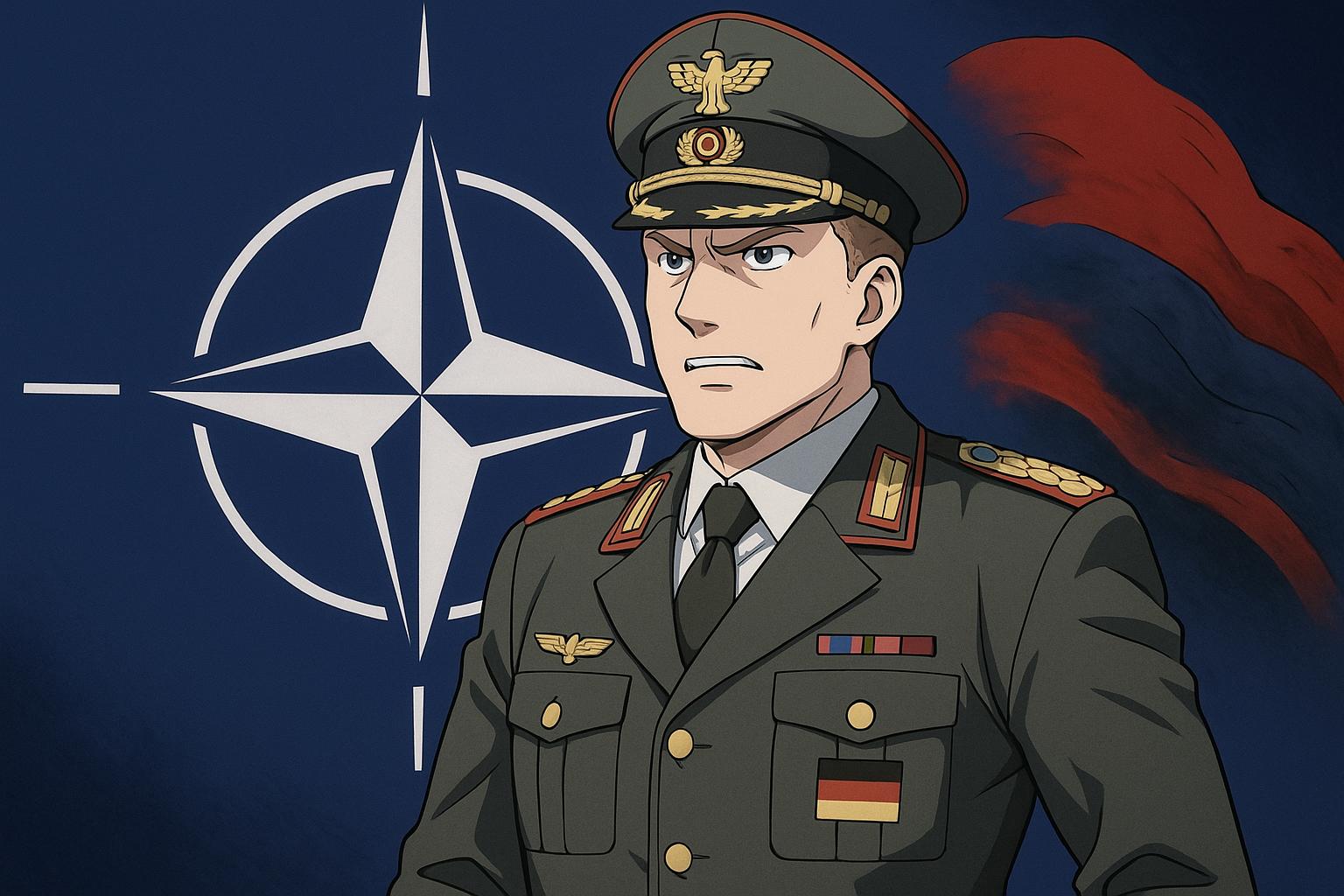As the geopolitical landscape becomes increasingly fraught with tension, Germany's chief defence officer has issued a stark warning about the gravity of the threat posed by Russia. General Carsten Breuer has urged NATO to prepare for a potential attack by Moscow within the next four years, characterising it as a "very serious threat" that is unprecedented in his 40 years of military experience. This alarm is echoed by the backdrop of a bold Ukrainian operation that recently struck at the heart of Russian military capabilities, targeting high-value assets at remote air bases.
The urgency of Breuer's warning is amplified by Russia's considerable military enhancements. According to his assessment, Russia is ramping up production of military hardware at a staggering rate, including projections of 1,500 main battle tanks annually and a remarkable output of four million rounds of artillery munitions by 2024. This arsenal is not solely directed at Ukraine; military experts observe a significant stockpiling that suggests preparations for actions against NATO, particularly concerning the Baltic states, which Breuer identified as particularly vulnerable. He stated, "There's an intent and there's a build up of the stocks for a possible future attack on NATO's Baltic state members."
Recent developments have further complicated the situation, including Ukraine's innovative use of kamikaze drones. Dubbed "Operation Spiderweb," these drone strikes—launched from disguised vehicles—successfully targeted crucial airfields in Arctic Murmansk and eastern Siberia, marking a humiliating setback for Russian military operations. The night of chaos was punctuated by explosions that reportedly resulted in the destruction of over 40 aircraft, including nuclear-capable bombers deemed untouchable until now. The attacks elicited fervent calls for a nuclear response from some segments of the Russian military, highlighting the escalating stakes.
In response to these shifting dynamics, Breuer has implored NATO members to revitalise their military capacities. He emphasised the critical need for increased defence spending and readiness, particularly in the face of perceived declining morale among NATO allies. Yet, while he promotes unity among member states, the reality is that gaps remain. Countries like Hungary and Slovakia have developed closer ties with Russia, complicating the cohesion of NATO at a time when strength and solidarity are paramount.
The challenges are compounded by broader concerns about NATO's internal dynamics, particularly in light of the United States' fluctuating commitment under former President Trump. Trump has often been perceived as favouring accommodation with Russia, casting a shadow over NATO's collective resolve. Recent remarks from Trump's envoy suggested that concerns about NATO's expansion eastward—including potential Ukrainian membership—are being dismissed as "fair." This has raised alarms in Europe, already fraught with anxiety over Russia's military ambitions and the potential for further conflict.
Amid these tensions, NATO Secretary General Mark Rutte emphasised the necessity for a wartime mindset among European nations, urging substantial investments in defence. He underscored the importance of bolstering air defence systems, particularly in light of emerging threats from drone warfare. The growing indifference from certain EU nations towards military preparedness stands in stark contrast to the imminent needs described by military leaders.
Despite momentum to enhance military readiness, Germany—Europe's largest economy—has struggled to meet NATO's defence spending commitments. The pressure to fulfil obligations is mounting, as neighbouring countries ramp up their expenditures significantly. Breuer’s recent directive aims to address these issues, mandating the full equipping of the German military to meet NATO standards by 2029. The call for renewed attention to military funding, particularly in air defence and digital warfare capabilities, is vital as the window of preparation narrows.
As the spectre of conflict looms larger, the stakes grow ever higher. Europe faces a dual challenge: to solidify its collective defence mechanisms while navigating an increasingly unpredictable international landscape marked by Russian aggression. In this context, the upcoming years will be crucial in determining NATO's ability to respond effectively to threats against its member states. Unifying the defence strategies of individual nations and enhancing military capacities could be the key to deterring any aggressor intent on testing the resolve of a united Europe.
Reference Map:
- Paragraph 1 – [1], [3]
- Paragraph 2 – [1], [5]
- Paragraph 3 – [2], [6]
- Paragraph 4 – [4], [5]
- Paragraph 5 – [7]
- Paragraph 6 – [4], [3]
- Paragraph 7 – [5], [6]
Source: Noah Wire Services
